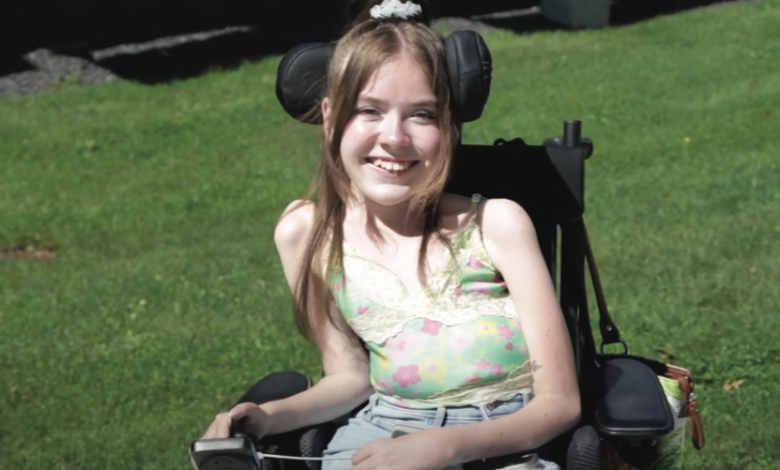
Students’ experiences with wheelchair-accessibility in sorority houses
By Tori Pender
Excited screams, jerseys and Greek letters have become normal when thinking of rushing season at Rider. Noelle Hazel, a freshman psychology major and new member of Alpha Xi Delta, experienced the thrills of the rushing process but is now faced with a challenge, wheelchair-accessibility into the sorority house.
“I definitely was nervous going into it … But for me, being physically disabled, it was a little bit daunting,” said Hazel.
A big part of sorority life on campus is living with your Greek sisters to cultivate and bond over your experiences in on-campus sorority housing.
Hazel explained, “Right now I am not sure if I will be or want to move in the house. I am definitely interested to and open to [it] … but right now the house is not accessible.”
Last spring
Bridget Gum, a sophomore English major, faced similar difficulties last spring. When she first became a member of Phi Sigma Sigma, Gum was also unable to enter the sorority’s residence hall, since it was not wheelchair-accessible.
A petition and TikTok post made by some of Gum’s fellow sorority sisters brought the situation to light.
In a previous article published by The Rider News on April 7 covering the accommodation situation, a Rider spokesman said, “The University has not received a formal request for housing accommodations from the student,” and “For those advocating to make Phi Sigma Sigma wheelchair accessible, please know that Rider has not denied any request to do so.”
Gum explained that her situation “blew up” from the public pressure put on Rider from the petition and TikTok.
“I don’t remember formally saying anything specific. Of course, there were other conversations where we would be, talking about it and I would say ‘Yes, I would like to live there, it’s just not accessible.’ … I don’t remember it being a formal request but I had a lot of conversations,” said Gum.
In the original timeline given by the university to Gum, the wheelchair ramp and accommodated room were supposed to be done in time for fall 2021.
“Accommodations in any sense of the word, they take forever, to be put in place and not just at Rider, everywhere,” said Gum. But progress has been made since last semester.
“I can get into the building, which is a huge plus,” explained Gum. The basement is now accessible by wheelchair and a sidewalk cutout was added, making the sidewalk wheelchair accessible as well.
However, even though Gum’s dorm room in Phi Sigma Sigma is now complete, she is currently unable to reside in it.
“No one checked in with me, after me approving the blueprint. So, I walk in, I don’t walk but you know what I mean. And I am looking at the room and there are just very few small things that need to be adjusted. I had to go back with them with another list, which I don’t love doing,” said Gum.
According to an email she received, the final adjustments should be ready within a week or two.
Gum said, “I guess we are on track, I had extremely low expectations, just like life has taught me that. … I am always like by the time you graduate it will be ready, is my on-going joke.”
Moving Forward
Hazel was unsure about the steps she had to take to make the Alpha Xi Delta house wheelchair-accessible.
“What really, actually shocked me and was really exciting to me. Already my new sorority sisters were kinda bringing it up to me before even I had to,” said Hazel.
Roberta Butler, associate dean of residence life explained the process students needing accommodations have to face.
“Students needing any accommodations for housing, start the interactive process with Student Accessibility and Support Services. They will meet with the student to go through all their need requests and the appropriate documentation that is necessary for the request. Once they have all the information they pull in the appropriate offices to go over the student’s request,” said Butler.
“The first really big step is getting the ramp to get in, to get into the lounge. That’s the biggest goal,” said Hazel. “Hopefully by the end of my four years, maybe all of the houses could be accessible.”


